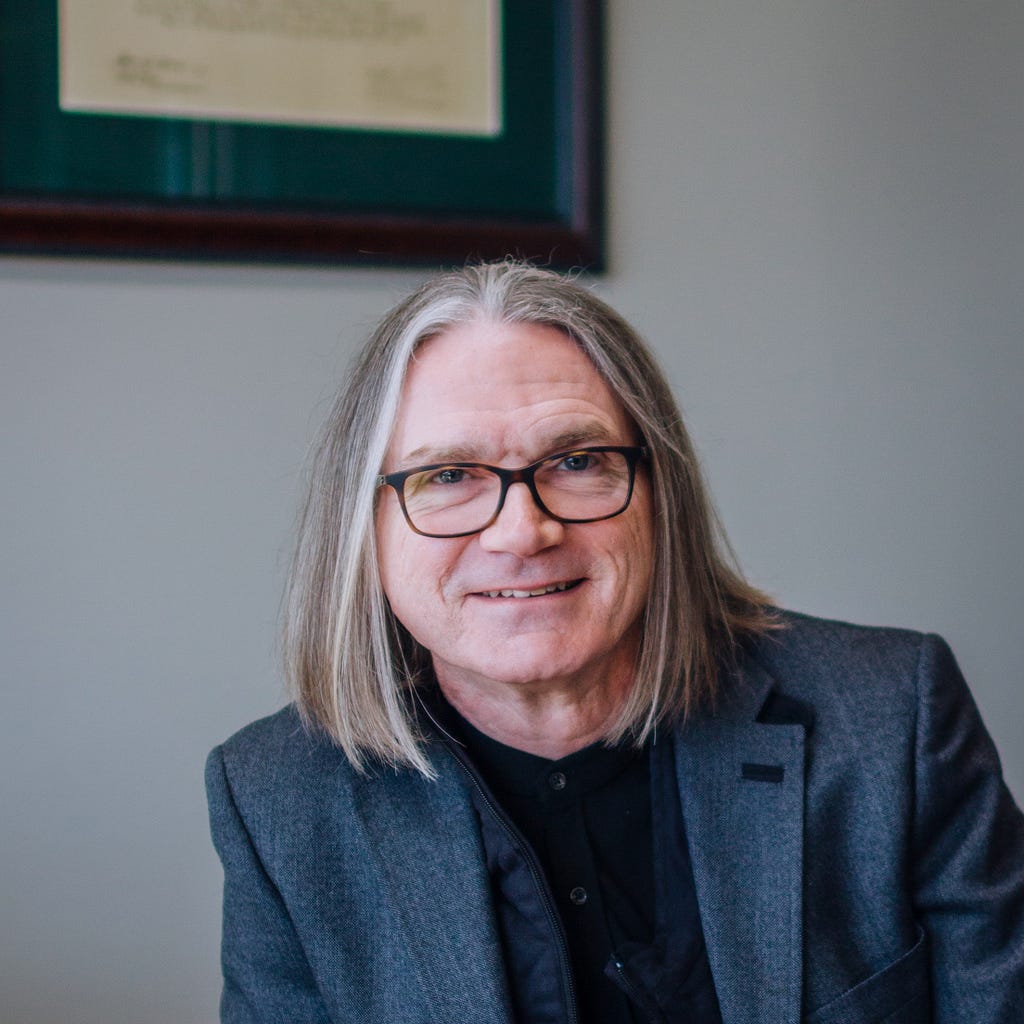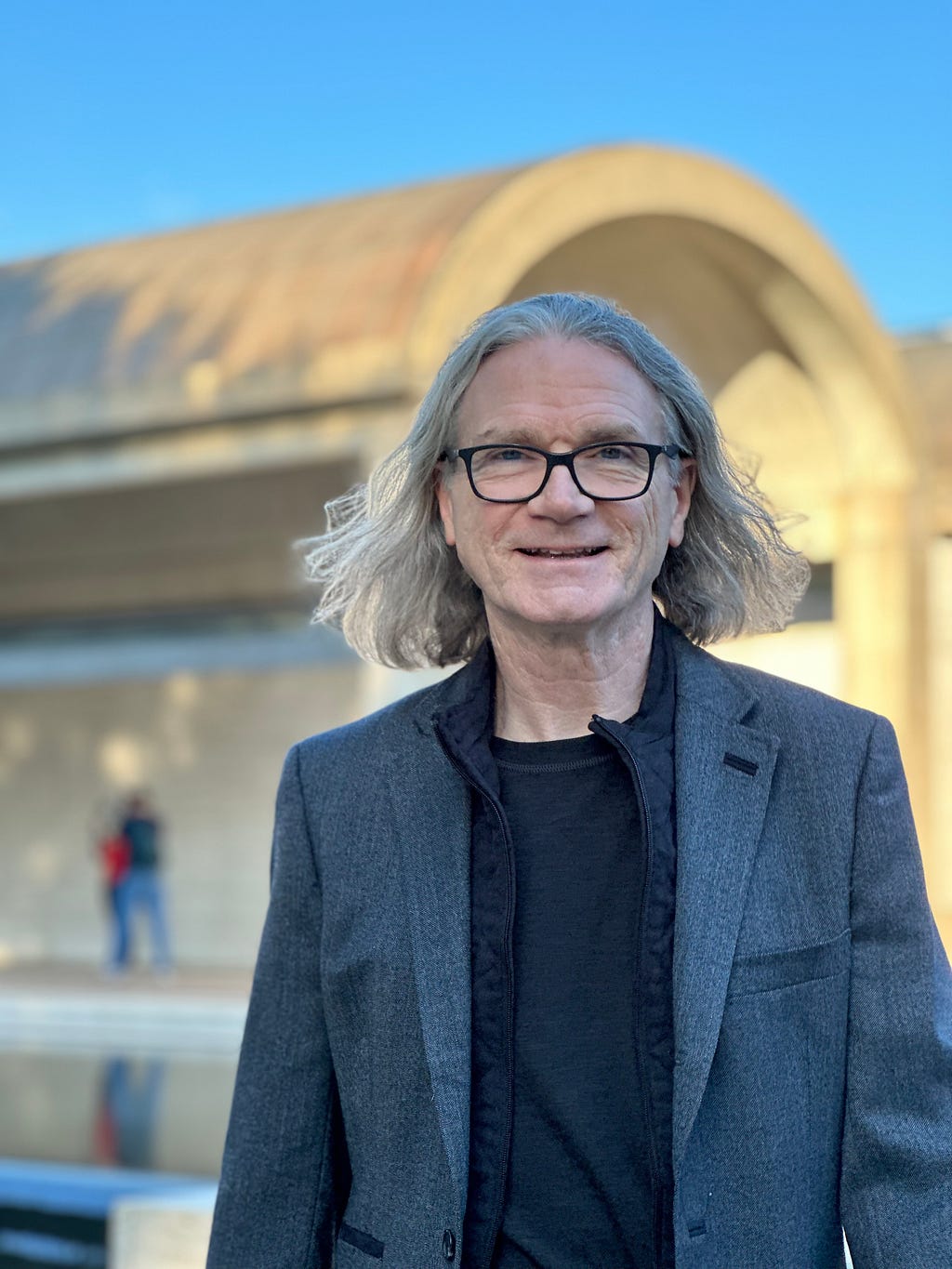An Interview With Brooke Young & Yitzi Weiner

Ask yourself, what is rewarding about taking care of other people? Are you comfortable with doing these caretaking actions for yourself, or even receiving it from others?
In today’s society, the tendency to prioritize others’ needs and expectations over one’s own can lead to significant emotional and psychological challenges. In this series, we would like to explore the complex dynamics of people-pleasing behavior and its impact on individual well-being and relationships. We would like to discuss the root causes of people-pleasing behavior, its effects on personal and professional life, and practical steps for cultivating healthier relationships and self-esteem. We hope that this series can provide insights, strategies, and real-life experiences that can help individuals navigate and overcome the pitfalls of being a people pleaser. As part of this series, we had the pleasure of interviewing Chris Heath.
Chris Heath, MD is a Psychiatrist and Psychoanalyst. He is a member of the Committee on Psychiatry and the Media at the Group for the Advancement of Psychiatry, a psychiatric think tank in the United States. He is Chair of External Communications at the International Psychoanalytical Association. He was awarded a Video Grant from the Psychoanalytic Electronic Publishing Web (PEPWeb); his series “Mind Your Mind”, explaining psychoanalysis in lay terms, is available on PEPWeb free of charge. He creates outreach videos on Tiktok at https://www.tiktok.com/@achrisheathmd and YouTube http://www.youtube.com/c/FreudaliciousMind
Thank you so much for your time! I know that you are a very busy person. Our readers would love to “get to know you” a bit better. Can you tell us your “Origin Story”? Can you tell us the story of how you grew up?
I was raised by my grandfather, who was something of an explorer. He was a geologist and loved the dimensions of reality below the surface. The crystal structure of rocks, the underground strata, and how it reflects geologic time. That love of understanding what is below the surface manifests in my excitement for understanding the emotional and unconscious life of the human psyche.
I made a video about my story, see here: https://youtu.be/Jt0lSMBs7t4?si=5qe0DjV2x9A1mm7l
Our family physician was a country doctor, who had the same excitement about understanding how people work. I knew I would be a doctor since I was 4 years old.
I discovered I was called to psychiatry in medical school. I had very good mentors who could show me how to understand human function. How our minds work makes sense, we just have to see below the surface.
I have gone to great lengths to optimize my experience and education. Beyond my psychiatry residency and psychoanalytic training, I have almost 30 years of experience in my private practice. I do mostly psychotherapy and psychoanalysis in my practice.
Thank you for all that. Let’s now turn to the main focus of our discussion about People Pleasing. To make sure that we are all on the same page, let’s begin with a simple definition. What does “People Pleaser” mean to you?
Cooperating with others, and altruism, watching out for our fellow humans, was probably the driving force behind the formation of civilization. So it is normal to wish for the well-being of other people. We also can identify with other people, so a person is indirectly imagining taking care of themselves when they take care of another person. And that can be very satisfying.
But it crosses a line at some point.
To be a “People Pleaser” means taking care of the other person with a lack of balance with regard for one’s self. The People Pleaser takes care of the other person, without taking care of themselves.
Along with that: the People Pleaser in some way loses sight of the other person as an authentic individual. For the People Pleaser, the other person, the receiver, becomes an extension of themselves. The receiver is paradoxically not thought about. So the People Pleaser takes care of the other person whether they want it or not. And it often feels inauthentic to the receiver; it’s hard to know who the People Pleaser is, their personal values and wishes. They are too focused on pleasing, so things like disagreements, mutual creativity, all those aspects of a real dialogue, are hindered.
On the surface, it seems like being a person who wants to please others is a good thing. Can you help articulate a few of the challenges that come with being a people pleaser?
Besides the problems with inauthenticity, a People Pleaser often ranks the other person’s wishes and needs over their own. That alone can interfere with them working on their own potential successes. But beneath that, and more importantly, many people with these traits are hypervigilant to the needs of others. That hypervigilance takes a lot of bandwidth, so it feels like anxiety. Also, they can be overwhelmed with trying to meet everyone’s sometimes conflicting needs and feel guilty if they don’t meet them.
Does being a people pleaser give you certain advantages? Can you explain?
On the surface, a People Pleaser is pleasant and attentive. Since it is often woven into their personality, to meet one is to feel listened to and cared for. These are traits that are pleasant to other people, so an advantage in society.
Can you describe a moment in your life when you realized that your own people-pleasing behavior was more harmful than helpful?
We psychiatrists and psychoanalysts generally have our own issues that bring us into the profession. This is a good thing; it’s difficult to identify with another’s struggles if you have not wrestled with your own. In my own psychoanalysis, I realized the difference between my expectations of other people, and who they actually are. It was breathtaking; before I realized, I saw literally everyone as agents who I had to please. After I realized, it made my previous life (as a People Pleaser) seem lonely and empty in retrospect. Everyone does this to some degree; we see other people in the way we expect them to be, and even act in ways to cause them to fulfill that expectation. And this is the way psychoanalytic psychotherapies work; seeing how our wishes color our actions and experience.
In your opinion, what are the common root causes of people-pleasing behavior?
So much comes from our definition of ourselves. Are we acceptable as we are? People sometimes see themselves as inadequate, and People Pleasers make up for that by taking care of others, intending to persuade others that they are worthy to have around. There is a manipulative quality to it.
Much of our self-definition comes from our childhood. Not simply modeling what we saw our parents do, although that is part of it. More importantly, somehow the child came up with People Pleasing as a solution; because it was reinforced by the people around them, or sometimes to avoid being hurt or neglected. And those important developments in childhood become woven into the person’s personality.
How does people-pleasing behavior impact personal relationships?
Typically, People Pleasers don’t assert their own wishes. Or if they do, it is in the name of helping, like becoming the leader to take care of everyone’s needs. So others often don’t feel like they personally know the People Pleaser; this behavior keeps them at a distance.
How does people-pleasing behavior impact professional relationships?
The worst thing in professional relationships is a lack of confidence in one’s own abilities, and what they bring to the table. To succeed at a profession, one has to assert one’s own opinions and promote one’s abilities, even within a team. If you think about the old TV show A-Team, every one of the members was an expert in their own role, and the team made use of that expertise for the good of the team. It is a caricature, but the People Pleaser needs to think about, and own, what they bring to the table with their team.
How can long-term people-pleasing behavior impact an individual’s mental health?
It is a lonely place to be, as a People Pleaser. They might be surrounded by people, but others don’t know who the People Pleaser really is, what is important to them. Also, being a People Pleaser is something of a hiding mechanism; the person can avoid their own worries and even mental health issues by distracting themselves with People Pleasing.
In your experience, what is the role of self-awareness in overcoming people-pleasing tendencies, and how can individuals cultivate it?
You have to notice you are taking care of people all the time. Usually, there is some wake-up call. A friend will get mad at them for always doing stuff for them. Or the People Pleaser will get overwhelmed with the demands of taking care of others. But this is a personality trait that is so woven into some people, they don’t realize they are doing it.
Once you notice, and see this happening in different situations, that is the first step. Only then can you begin to work on it.
Ask yourself what you like about taking care of other people. It is hard to change a habit if you like it, especially when there is not another obvious way to have your internal, psychological needs met.
Then, wonder what being a People Pleasing is protecting you from. What if you set boundaries? This is where it becomes real, and it is why psychotherapy is always a unique experience to each person. Because those personal motivations, fears, and history are always specific to the individual.

Here is the primary question of our discussion. Based on your experience or research, what are the “Five Strategies Or Techniques That Can Help Individuals Break Free From The Cycle Of People-Pleasing”? If you can, please share a story or an example for each.
- Recognize your patterns. Are there situations that seem to repeat in your life? And for the People Pleaser, do you notice your obligations always have to do with other people’s wishes and needs?
- Balance taking care of the other with taking care of yourself. If it is not balanced, if you are not taking care of yourself, there will be something lacking for you and in what you have to offer.
- Ask yourself, what is rewarding about taking care of other people? Are you comfortable with doing these caretaking actions for yourself, or even receiving it from others?
- What kinds of things are rewarding or enjoyable for you? If you don’t know, this might take some work to figure out. And if you do know but feel guilty when you do them, explore what you think is wrong about it.
- Keep up the work on yourself. These are generally lifelong patterns, woven into ourselves. Really making intrinsic change may take therapy. But at least ongoing attention. Make it your hobby to make these changes.
How can someone who is naturally empathetic maintain their compassion while becoming more assertive?
Know that being assertive is a kind act. You are not being mean by not taking care of the other person. Think about a parent who has to tell their child “no”, or has to teach their child the value of responsibility.
What are the most common misconceptions about people pleasers, and how do these misconceptions affect their journey toward recovery?
Families and groups have certain ways of functioning. And the People Pleaser plays a role in the dynamic. But the group has to allow for growth of individuals, otherwise it is dysfunctional. So a person trying to change almost always receives pressure to stay the same, even from people who are overtly encouraging them.
What role can therapy or counseling play in helping individuals overcome people-pleasing behavior?
Therapy is like having a consultant helping a person to live life more richly and with more freedom. But therapy is not coaching. Issues get played out between the therapist and patient, and then can be talked about. Because these patterns follow a person everywhere, they also play out with the therapist, and good therapy pays attention to those patterns. For instance, a patient might start trying to take care of the therapist in subtle ways. Or maybe a patient is angry and envious that the therapist isn’t a People Pleaser, that they are not burdened in that way. But therapy is always an individual journey; there is always a sense of surprise when the therapist and patient discover something.
You are a person of great influence. If you could start a movement that would bring the most amount of good to the most amount of people, what would that be? You never know what your idea can trigger. 🙂
People are afraid of their feelings, afraid of their wishes and thoughts, and of their unconscious desires. Too often, people have shame and doubt around their feelings, around their mistakes. And the opposite can happen, also; narcissism can lead to a concerning absence of shame and doubt. Feelings and wishes are like gauges on a dashboard, and mistakes are opportunities to learn. Shame is a trick that our mind plays on itself because of a need to feel we control more than we do. If we could put shame in perspective, and accept our worth as our authentic selves, we could free up a tremendous creative energy, for ourselves and our communities. This is what motivates me in my efforts to educate the public about their mind.
How can our readers further follow your work online?
On TikTok HeathMD https://www.tiktok.com/@achrisheathmd
On Facebook: Bored Therapist https://www.facebook.com/FREUDalicious
On YouTube: HeathMD http://www.youtube.com/c/FreudaliciousMind
Thank you so much for sharing these important insights. We wish you continued success and good health!
About the Interviewers:
Brooke Young is a multipassionate publicist, public speaking mentor, and communication consulting. She works with a wide range of clients across the globe, and across a diverse range of industries, to help them create, develop, and promote powerful messages through heart-centered storytelling. She has formerly worked On-Air with FOX Sports, competed in the Miss America Organization, and is the Author of a Children’s Book. She frequently works with children as a professional speaker where she educates on Volunteering and Therapy Dogs. She has over a decade of professional performing background and finds joy in sparking creative passions for her clients.
Yitzi Weiner is a journalist, author, and the founder of Authority Magazine, one of Medium’s largest publications. Authority Magazine is devoted to sharing in depth “thought leadership interview series” featuring people who are authorities in Business, Tech, Entertainment, Wellness, and Social Impact.
At Authority Magazine, Yitzi has conducted or coordinated thousands of empowering interviews with prominent Authorities like Shaquille O’Neal, Peyton Manning, Floyd Mayweather, Paris Hilton, Baron Davis, Jewel, Flo Rida, Kelly Rowland, Kerry Washington, Bobbi Brown, Daymond John, Seth Godin, Guy Kawasaki, Lori Greiner, Robert Herjavec, Alicia Silverstone, Lindsay Lohan, Cal Ripkin Jr., David Wells, Jillian Michaels, Jenny Craig, John Sculley, Matt Sorum, Derek Hough, Mika Brzezinski, Blac Chyna, Perez Hilton, Joseph Abboud, Rachel Hollis, Daniel Pink, and Kevin Harrington
Yitzi is also the CEO of Authority Magazine’s Thought Leader Incubator which helps business leaders to become known as an authority in their field, by interviewing prominent CEOs, writing a daily syndicated column, writing a book, booking high level leaders on their podcast, and attending exclusive events.
Chris Heath On How to Recover From Being a People Pleaser was originally published in Authority Magazine on Medium, where people are continuing the conversation by highlighting and responding to this story.
